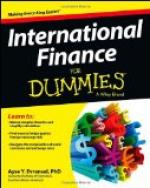In this matter of machinery London has certain advantages which ought, if well used and applied, to stand her in good stead in any struggle that lies ahead of her. London’s credit machinery has grown up in almost complete freedom from legislation, and it has consequently been able to grow, without let or hindrance, along the lines that expediency and convenience have shown to be most practical and useful. It has been too busy to be logical or theoretical, and consequently it is full of absurdities and anomalies, but it works with marvellous ease and elasticity.
In its centre is the Bank of England, with the prestige of antiquity and of official dignity derived from acting as banker to the British Government, and with still more practical strength derived from acting as banker to all the other great banks, several of them much bigger, in certain respects, than it. The Bank of England is very severely and strictly restricted by law in the matter of its note issue, but it luckily happened, when Parliament was imposing these restrictions on the Bank’s business, that note issuing was already becoming a comparatively unimportant part of banking, owing to the development of the use of cheques. Nowadays, when borrowers go to the Bank of England for loans, they do not want to take them out in notes; all they want is a credit in the Bank’s books against which they can draw cheques. A credit in the Bank of England’s books is regarded by the financial community as “cash,” and this pleasant fiction has given the Bank the power of creating cash by a stroke of its pen and to any extent that it pleases, subject only to its own view as to what is prudent and sound business. On p.33 ("A bank return”, below) is a specimen of a return that is published each week by the Bank of England, showing its position in two separate accounts with regard to its note issuing business and its banking business: the return taken is an old one, published before the war, so as to show how the machine worked in normal times before war’s demands had blown out the balloon of credit to many times its former size.
If the commercial and financial community is short of cash, all that it has to do is to go to the Bank of England and borrow a few millions, and the only effect on the Bank’s position is an addition of so many millions to its holding of securities and a similar addition to its deposits. It may sometimes happen that the borrowers may require the use of actual currency, and in that case part of the advances made will be taken out in the form of notes and gold, but as a general rule the Bank is able to perform its function of providing emergency credit by merely making entries in its books.
A BANK RETURN
Issue department.




